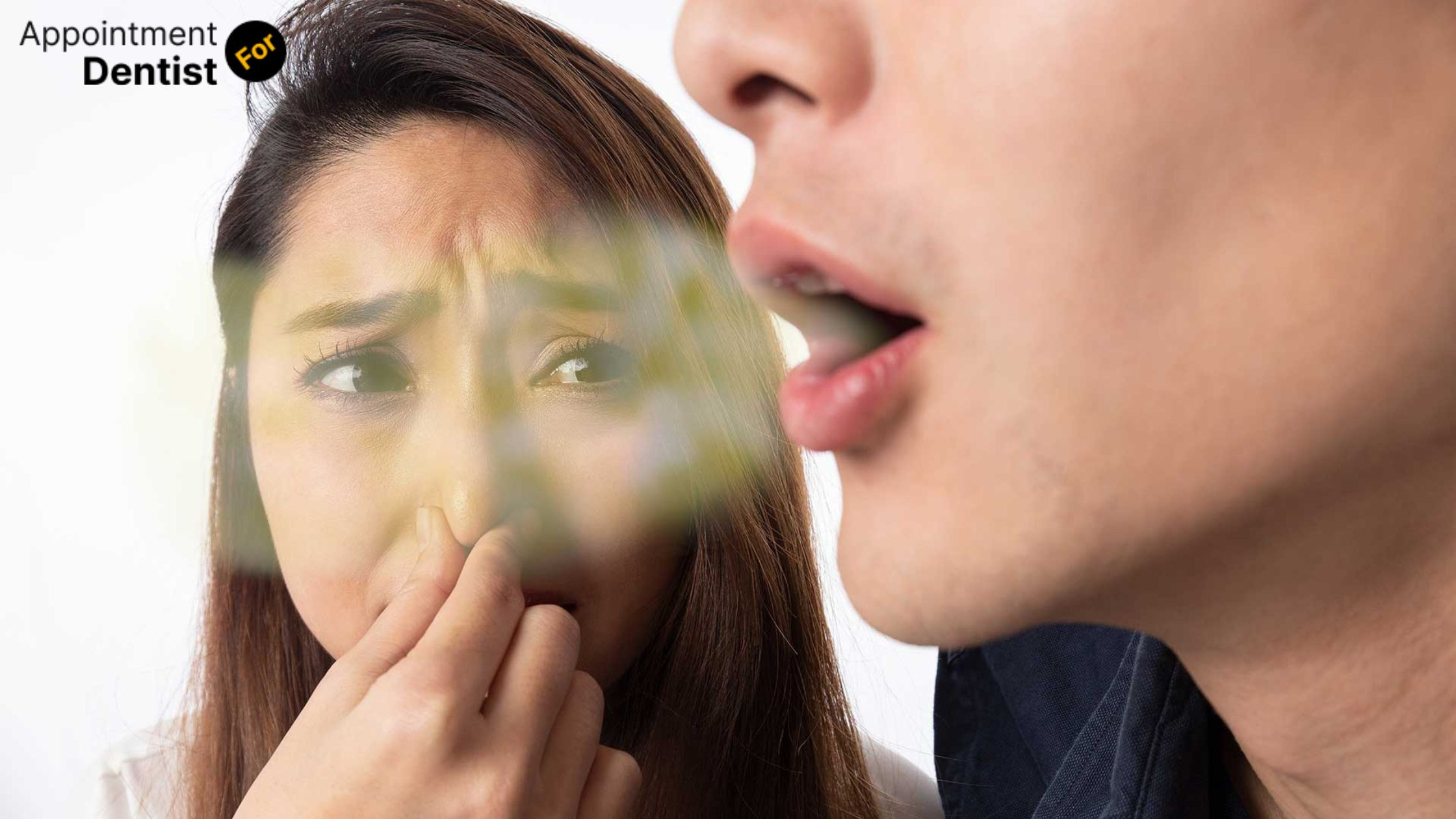Comprehensive Guide to Managing Halitosis (Bad Breath)
Posted on July 18, 2024 by Admin

Halitosis, commonly known as bad breath, is a condition that can cause social discomfort and affect personal confidence. It's a prevalent issue, with various underlying causes ranging from oral hygiene habits to underlying health conditions. Understanding the causes and effective management strategies is crucial for addressing and preventing halitosis. This comprehensive guide explores the causes, prevention tips, and treatment options for managing bad breath effectively.
Understanding Halitosis
It can be transient or chronic, depending on its underlying cause:
- Transient Bad Breath: Occurs temporarily, often due to foods like garlic or onions, poor oral hygiene, or morning breath.
- Chronic Bad Breath: Persists despite oral hygiene efforts and is typically caused by underlying factors such as gum disease, dry mouth, or medical conditions.
Common Causes of Bad Breath
- Poor Oral Hygiene: Bacteria build-up on teeth, gums, and tongue can produce foul-smelling gases.
- Gum Disease: Gingivitis and periodontitis can cause bad breath due to bacteria accumulating in pockets around the teeth.
- Dry Mouth (Xerostomia): Saliva helps cleanse the mouth; reduced saliva production can lead to bad breath.
- Food and Drink: Foods like garlic, onions, and certain spices contain sulfur compounds that contribute to bad breath.
- Medical Conditions: Sinus infections, respiratory tract infections, diabetes, liver or kidney disease, and acid reflux can cause chronic bad breath.
Must Read: 7 Mistakes to Avoid When Choosing a Dental Plan
Prevention Tips for Halitosis
Maintaining good oral hygiene and making lifestyle adjustments can help prevent and manage bad breath effectively:
- Clean Your Tongue: Use a tongue scraper or brush to clean the surface of your tongue, where bacteria and food particles can accumulate.
- Stay Hydrated: Drink plenty of water to help maintain saliva production and prevent dry mouth.
- Avoid Tobacco Products: Quit smoking or using tobacco products to reduce bad breath and improve overall health.
- Watch Your Diet: Limit intake of foods known to cause bad breath, and eat a balanced diet rich in fruits and vegetables.
- Use Mouthwash: Rinse with an antibacterial mouthwash to reduce bacteria and freshen breath.
- Regular Dental Check-ups: Visit your dentist at least twice a year for professional cleanings and to detect any dental issues early.
Treatment Options for Bad Breath
Treating chronic bad breath often involves addressing the underlying cause:
- Improving Oral Hygiene: Dentists may recommend specific oral hygiene practices or treatments to reduce bacteria and plaque build-up.
- Treatment of Gum Disease: Scaling and root planing (deep cleaning) may be necessary to treat gum disease and reduce bad breath.
- Managing Dry Mouth: Your dentist may recommend saliva substitutes or medications to stimulate saliva production.
- Treating Underlying Medical Conditions: Addressing medical conditions such as sinus infections, acid reflux, or diabetes can help improve bad breath.
- Professional Breath Treatments: Some dental offices offer specialized treatments or products designed to neutralize bad breath.

When to See a Dentist
If bad breath persists despite following good oral hygiene practices and lifestyle changes, it's essential to see a dentist or healthcare provider.
Also Read: Things You Should Know About Dental Insurance
Conclusion
Halitosis can have various causes, from poor oral hygiene to underlying health conditions. By understanding the factors contributing to bad breath and implementing effective prevention and treatment strategies, individuals can effectively manage this condition. Maintaining good oral hygiene, addressing underlying health issues, and making lifestyle adjustments are key steps in preventing and reducing bad breath. Regular dental check-ups play a crucial role in early detection and management of oral health issues that may contribute to halitosis. With proper care and attention, individuals can enjoy improved oral health and confidence in social interactions.
Faqs
-
1. What causes bad breath?
Bad breath can be caused by poor oral hygiene, gum disease, dry mouth, certain foods, tobacco use, and underlying medical conditions.
-
2. How can I prevent bad breath?
Maintain good oral hygiene by brushing and flossing regularly, clean your tongue, stay hydrated, avoid tobacco products, and limit foods that cause bad breath.
-
3. Is bad breath a sign of a serious health problem?
In some cases, chronic bad breath can indicate underlying health issues like gum disease, sinus infections, diabetes, or digestive disorders. It's essential to see a dentist or healthcare provider for a proper diagnosis.
-
4. Can mouthwash eliminate bad breath?
Mouthwash can temporarily freshen breath by reducing bacteria in the mouth. However, it's important to address the underlying cause of bad breath for long-term relief.
-
5. When should I see a dentist about bad breath?
If bad breath persists despite good oral hygiene practices and lifestyle changes, or if it's accompanied by other symptoms like gum bleeding or dry mouth, it's advisable to consult a dentist for evaluation and treatment recommendations.
Recent Post
- The Importance of Oral Health Education for Children
- How to Choose the Right Orthodontic Treatment for Adults
- The Link Between Oral Health and Stroke Risk
- How to Address and Prevent Gum Recession
- Innovations in Dental Anesthesia: Pain-Free Procedures
- The Role of Saliva in Oral Health: Functions and Disorders
- Exploring Holistic Dentistry: What You Need to Know
- How Oral Health Affects Your Immune System
- The Benefits of Using Dental Probiotics
- Oral Health and Pregnancy: Myths and Facts